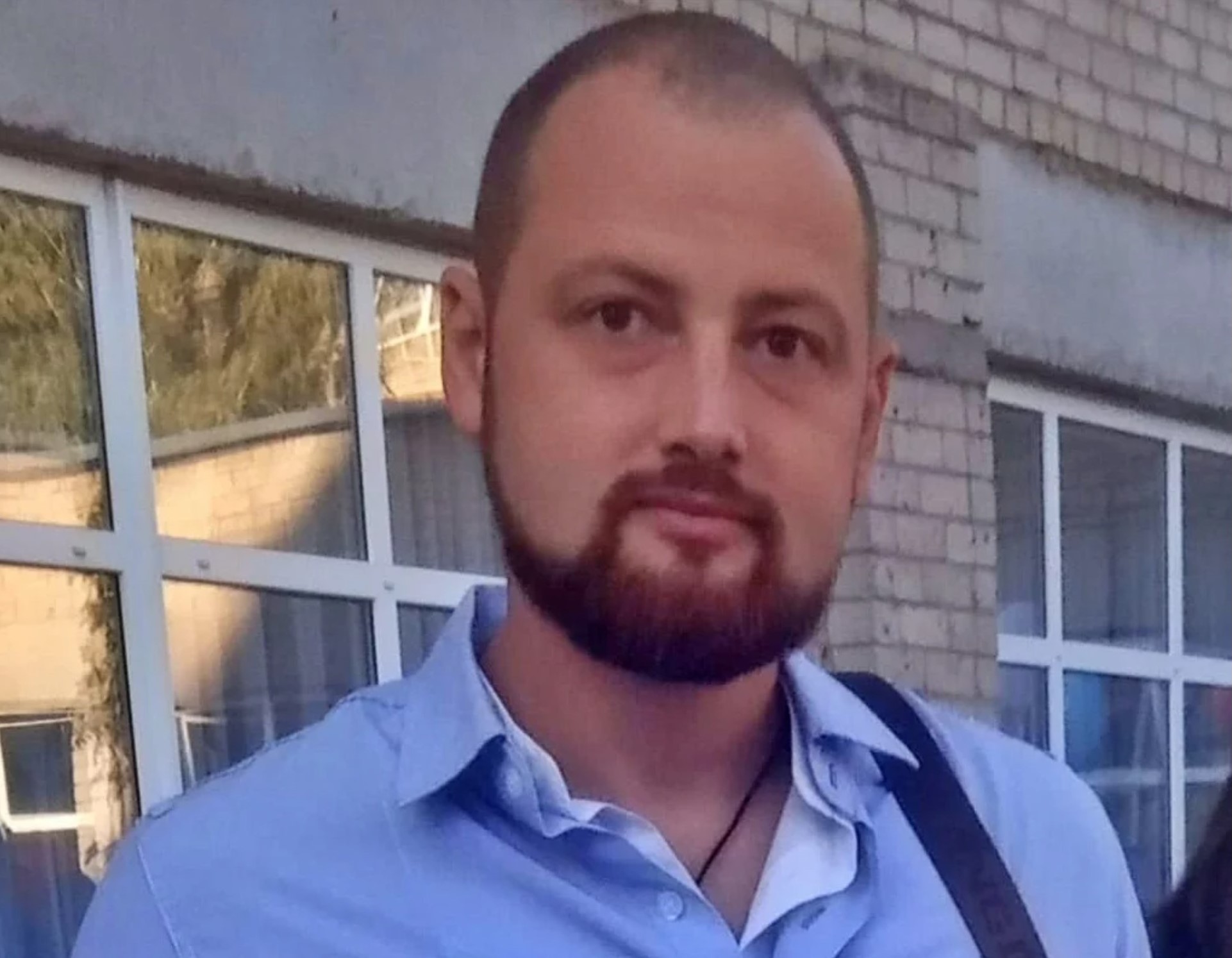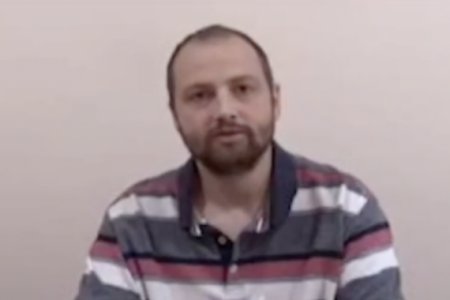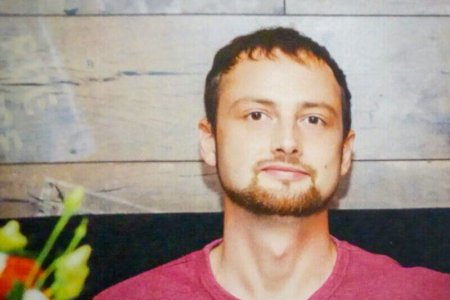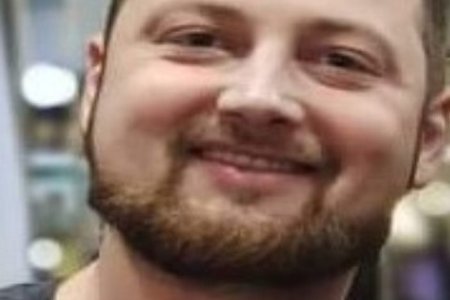
A Russian court has asked no questions about a computer presented as ‘evidence’ against Ukrainian Yaroslav Zhuk, although the fact that the computer is almost empty confirms Zhuk’s own insistence that he had never set eyes on it. This is by no means the first time that ‘judges’ from Russia’s Southern District Military Court have pretended not to notice the glaring gaps in the prosecution’s case, as well as Zhuk’s own detailed account of the torture used to extract his videoed ‘confession’.
During the last hearing on 19 January 2024, the court ‘studied’ the contents of the laptop which the prosecution claimed had been removed from Zhuk’s home when he was arrested. Zhuk has long said that the laptop is not his and his lawyer, Alexei Ladin, pointed out to the court that this was confirmed by the computer’s contents, or lack of such.
The laptop contains only the one, purportedly incriminating, text file and around ten photos, all of which Zhuk had earlier shared on social media. The text has the words: “Melitopol is a Ukrainian city” and calls to reject Russian passports. It was also created a day before the events of which Zhuk is accused. Aside from this, there are only around 20 photos, most of them loaded into the laptop on the same day and all, as mentioned, freely available on social media. Ladin pointed out that the folders entitled ‘Downloads’; ‘My Documents’; ‘Music’ and ‘Pictures’ were completely empty and there was nothing else on Disc C which would suggest that the computer was in use.
There is nothing to suggest that such obviously falsified ‘proof’ was of any concern to the presiding judge Oleg Aleksandrovich Cherepov and his two colleagues. A month earlier, this same panel of judges refused to recall a supposed witness despite telling discrepancies in his evidence. The individual, Maksym Shirokov was presented as ‘a member of the public who had just happened to witness an operational measure, namely the inspection of Zhuk’s car and the scene of the alleged crime. The defence had asked for Shirokov to be questioned again, and presented photographic evidence demonstrating that he had lied (by denying any legal education or service in the law enforcement bodies). He had, in fact, worked in a Melitopol prosecutor’s office, and was clearly not a chance passer-by. Cherepov rejected the application to recall Shirokov, claiming it to be ‘unfounded’.
At a previous hearing, the same judges ignored the fact that Zhuk recognized one of two ‘witnesses’ as one of the men who had beaten and abducted him after his abduction. Nor have they paid any heed to Zhuk’s retraction of his supposed ‘confession’ as soon as he was finally able to see an independent lawyer. He has given a consistent account of the savage torture used to extract his ‘confession’ for Russian propaganda. He will doubtless repeat this when question at the next hearing, which is scheduled for 8 February.
Yaroslav Zhuk is one of a number of Ukrainians from occupied parts of Kherson or Zaporizhzhia oblasts whom Russia first illegally abducted and then accused of ‘acts of international terrorism’. This is under Article 361 of Russia’s criminal code which had not been used prior to Russia’s full-scale invasion of Ukraine and which Russia is using in grotesque violation of international law. Zhuk, a Ukrainian volunteer was living in his native Melitopol when he was abducted and tortured by the security service of aggressor state that had invaded his country. That aggressor state is claiming the right to accuse Zhuk of something it calls ‘an act of international terrorism’ and to ‘try’ him for this in a Russian court.
At the very beginning of the ‘trial’ now underway, Zhuk stated that the multiple ‘confessions’ he had been videoed reading out had been extracted through savage beatings, electric shocks and other forms of torture. He also reported that, from 29-30 May 2023, he had been brutally beaten by staff at the Rostov SIZO. He said that the staff had forced him to the floor and poured cold water over him before they began beating him and using a Taser gun as a torture weapon. His torturers had forced him to keep his head down, so he could not identify the men, but he said that there had been three men who asked him questions about “links with members of prohibited organizations”. Zhuk said that he still had the marks from his beating, but the court rejected the defence’s legitimate application for the assault to be separately investigated and claimed that the prosecutor would initiate a check “should violations of legislation be found”.
While held prisoner in occupied Crimea, Zhuk described in detail his abduction and the torture he had endured. He explained that he had been seized on 17 June 2022, when armed men blocked his car, and then took him away by force and with a bag over his head. He was taken to some basement where he was subjected to such torture that, on several occasions, he lost consciousness. Among the forms of torture used to extract ‘confessions’ were electric shocks, inflicted through wires being attached to parts of his body, including genitals; earlobes or testicles, with the Russians then turning on an electric current, His torturers also beat him with a blunt instrument over his entire body and hey burned his feet with a lit gas burner. He was not given any food at all during the first week, only a tiny amount of water each day.
He eventually couldn’t endure such torture anymore and agreed to ‘confess’ to whatever they demanded of him. At that point he was taken, blindfolded, to another premises, without any light or water, where “they got me to sign a printed confession to fabricated charges.” He says that there were, in fact, three distinct versions of the ‘confession’, each of which he was tortured into signing. He was then forced to learn the text of (one) ‘confession’ and read it out before a video camera. They waited for this, however, until the torture marks on his face had cleared.
Zhuk asserts that they also forced him into holding (and therefore leaving fingerprints) on various items and substances. Identical methods have been reported by other hostages, facing such ‘international terrorism’ charges.
Zhuk was held in this basement from 17 June to 8 August, before being taken by force to occupied Crimea, to the Simferopol FSB. It was around a month after his seizure that Russian state media claimed to have caught “the saboteur” who had made an attempt on the life of the Russian-installed 'director' of the Melitopol department of education’, Olena Shapurova. They cited Vladimir Rogov, a collaborator installed by the Russians in Melitopol and the video he posted on his Telegram channel, in which Zhuk, was seen alone, supposedly ‘confessing’ to the attack, and saying that he was part of the partisan movement, under the command of Ukraine’s Security Service [SBU].
Even without Zhuk’s unequivocal retraction of his ‘confessions’ and account of the torture used to obtain them, such ‘testimony’ would have been suspect. Zhuk had been held incommunicado, under the total control of his captors and without access to an independent captor for almost two months. It was only on 11 August 2022, that a Russian occupation Crimean ‘court’ formally acknowledged that he was in Russian captivity and remanded him in custody.
He has been imprisoned, far from his wife and son, who has serious health issues, for over 18 months, with Russia clearly planning a huge sentence on absurd charges, and without any pretence of a fair trial.


